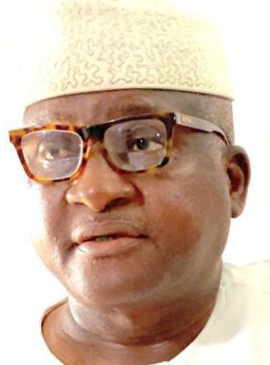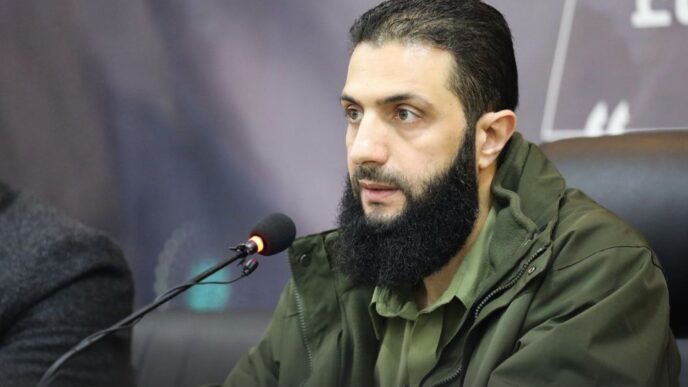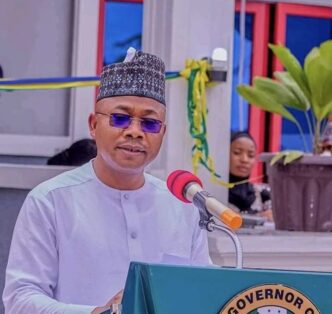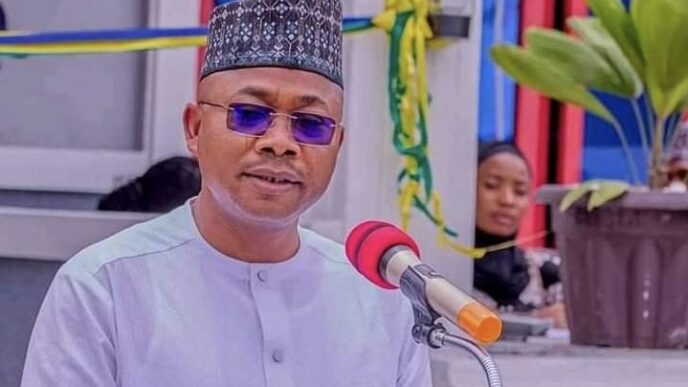It was a moment of truth, reflection and tribute. The atmosphere was both convivial and sober as families, friends and old colleagues of Colonel Bello Fadile listened to the review of his book titled; ‘Nine Lives: The Bello Fadile Memoirs’.
From any angle one chooses to look at it, Fadile’s upbringing, career in the military and the travails that perhaps dictated the title of the book were all wrapped up in a mystery. A brilliant young man who was driven into the military by patriotism gave his best in building the nation but ran into trouble midway. He became one of the unlucky military officers who was sentenced to death by the military regime of the former military head of state, the late General Sani Abacha.
It is instructive to note that “Nine Lives: The Bello-Fadile Memoirs,’ a book that speaks to the most brutal military era in Nigeria’s history, was publicly presented on Monday, November 28, 2024, at the prestigious Shehu Yar’ Adua Centre, Abuja.
The event was chaired by former head of state, General Abdulsalami Abubakar, and had in attendance the former national security adviser (NSA), Col Sambo Dasuki, and other important dignitaries from different walks of life.
Advertisement
The 400-page book chronicles the early life of Bello-Fadile, his service in the Nigerian military and his close shave with death after his arrest in 1995 during the military rule of Abacha.
In the book, Fadile chronicled how he was arrested, tried and sentenced to death in the tragic saga that implicated dozens of prominent Nigerians, including General Olusegun Obasanjo (former military head of state, who would later become president in 1999), his erstwhile deputy, Shehu Yar’Adua, a retired major-general who died in Abakaliki prison and Lawan Gwadabe, a retired brigadier general.
It is important to note that the book is divided into five chapters, each narrating events that shaped the author’s life.
Advertisement
The former military president, Ibrahim Babangida, wrote the foreword to the book while he was represented at the event by his daughter, Aisha, who read his prepared speech. According to Babangida, the idea of Bello-Fadile’s Nine Lives can easily be discerned from his professional trajectory, both as an officer and a lawyer.
Earlier in his speech, Abubakar said Bello-Fadile, in the course of his military career, demonstrated a remarkable dedication to the core values that define Nigeria’s armed forces: loyalty, discipline and sacrifice.
The book was reviewed by lawyer Agbo Madaki while the presidential candidate of SDP in the 2023 general election, Adewole Adebayo, was the chief book presenter.
Madaki remarked that the narrating power of the author cannot be ignored as he was able to capture the interest of his readers through his vivid recollections of events and excellent poetic skills.
Bello Fadile’s offence appeared light at the beginning but as things unfolded, his problem compounded and he was sentenced for advocating a non-violent composition of an interim government to replace the military junta of his then-friend and boss, the late Sani Abacha. The rest is history.
Advertisement
Friends and members of his family were thrown into uncertainty. They were running from pillars to polls to secure his release but all to no avail. Those who believed that what God could not do did not exist went spiritual, moving from one mountain to prophets. Both genuine and fake prophets showed up that they had the magic wand. In the process, the family was swindled and prophesies, both real and unreal were flying in from one corner to the other. Though Fadile’s spirit was strong and his faith was unshaken, the flesh became weak.
His travails started on February 26, 1995, when soldiers came to his room and pointed rifles at his second son Ralph Bello-Fadile. Before then, he had been under surveillance. Prior to the arrest, he had a conversation with the chief of air staff about his promotion, with plans to meet on Wednesday during a games day. That scheduled Wednesday met him where he didn’t expect and he remained there till God showed up for him.
Many people, including a former chief of army staff, the late Sheu Yar’Adua, were not lucky. They died in prison. When everybody thought the hope of securing his release had been lost, Fadile got an unexpected liberation from what had been a life sentence under the late dictator.
In the early hours of March 4, 1999, the former intelligence officer received the life-changing news. According to him, a tap on his cell window jolted him awake, and to his surprise, he found a retired warrant officer of the Nigerian Army, now working as a warder, delivering the long-awaited message of freedom. With a sense of disbelief and overwhelming gratitude, he hastily shared the news with his fellow inmates, marking the end of three days of fervent prayer and fasting.
Advertisement
When asked how he holds on to hope despite everything he has been through, Bello Fadile’s response was “If you believe there is God, there’s always a better tomorrow. It’s a question of determination. Keep trying and things will work out fine. As a human being, I always believe tomorrow will be better than today and I work towards tomorrow being better than today as I say my Holy Rosary always. I don’t give up; I do my part and allow God’s will to be done”
In his testimony, which forms part of just unveiled memoir, he narrated: “Twenty-five years ago, in the wee hours of March 4, 1999, I heard a tap on my cell window and a shout of Colonel! Colonel! Wake up! I got up and went closer. Oga, you don free! Congratulations, sir. Start packing your things; you are going home,” said the retired warrant officer and that signalled the sweet end of his harrowing years in prison.
Advertisement
In total amazement, the retired colonel asked him: “What did you just say?” He said, “Yes, sir. You are to be released today, sir”. Fadile didn’t say anything. He just believed his ‘new commander’ and rushed to the general open cell opposite his cell to tell the two other inmates who were on a three-day dry fasting with him, seeking the face of God in his situation.
By sheer miracle, it was the beginning of the third day. He told them the good news and they shouted, ‘Hallelujah!’ and they stood up and joined hands to sing a chorus. He further added that amid expressions of joy and gratitude, he was preparing to leave his confinement behind when the officer-in-charge delivered the official announcement of his pardon by the then head of state and commander-in-chief, General Abdusalami Abubakar.
Advertisement
According to the human rights lawyer, it was with a newfound sense of freedom and a deep appreciation for those who supported him during his ordeal that he stepped out of the prison gates into a new chapter of life on that fateful day.
As his loved ones gathered to share in his testimony of freedom, Fadile expressed gratitude to Abubakar and all those who contributed to the establishment of a true democratic government in Nigeria. He also extended his appreciation to the Nigerian military, emphasising his enduring love for his country.
Advertisement
Col. Bello Fadile or RSB as commonly called is a man of quick wit, unrivalled tenacity, and dogged perseverance. It would seem to the onlooker that it is these exceptional qualities that have enabled him to overcome difficult and sometimes seemingly hopeless situations and come out victorious.
But if you ask him, he will tell you that it has been purely by the grace of God, and by the invaluable bonds of quality relationship he has been privileged to experience that he has made it thus far. He sees relationships as caring beyond imagination.
This description paints a vivid picture of a man who recognizes the importance of community and faith in his journey and understands the balance between personal efforts and the influence of external factors in achieving success.
Born and raised in Kabba, Kogi state, Nigeria, Bello Fadile gained admission to the Nigerian Defence Academy, Kaduna in 1971 after finishing his secondary school at the Ilorin Teacher’s College, Ilorin, Kwara State Nigeria.
Over the next two decades, he pursued his education in law while advancing through the ranks in the Nigerian Army. In December 1988, with two masters degrees in law (LLM) he earned a doctorate of philosophy (PhD) in international law, becoming the first PhD law graduate from Ahmadu Bello University as well as the first PhD in law holder in the Nigerian military.
He rose to the rank of colonel in the Nigerian Army before his retirement in 1999. Thereafter, he practised law in Abuja, having been called to the Nigerian Bar in June 1978. He is currently the founder and president of a non-profit NGO, Council for African Security Affairs registered in the Lone Star State of Texas.
After all is said and done, Fadile added that his account is to serve as a reminder of resilience, faith, and the triumph of justice over adversity.
Amokeodo, a public affairs analyst, contributes this piece from Lagos
Views expressed by contributors are strictly personal and not of TheCable.











